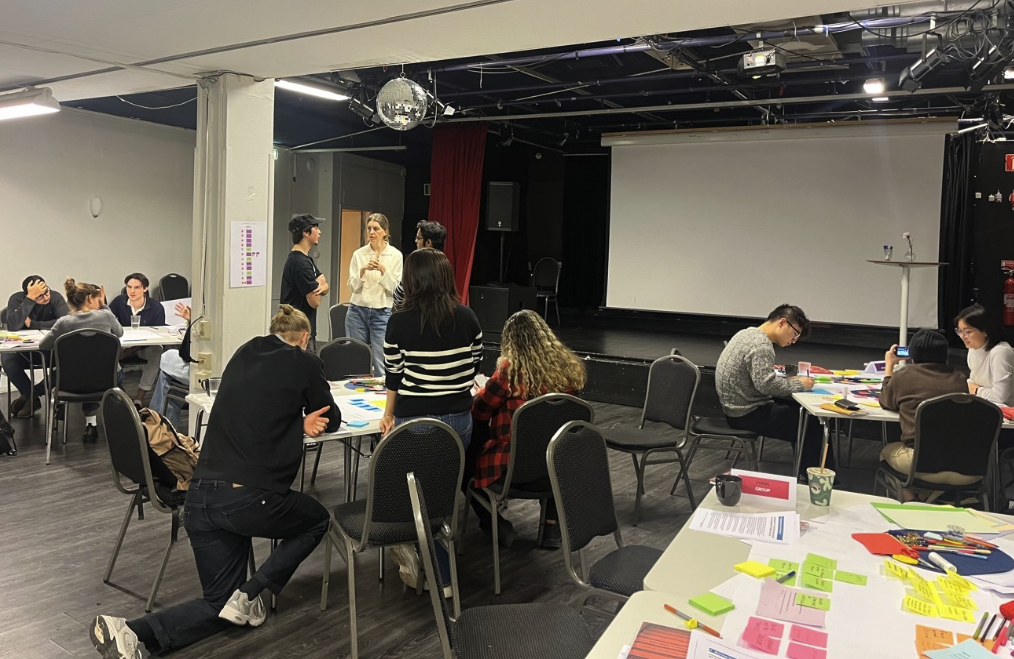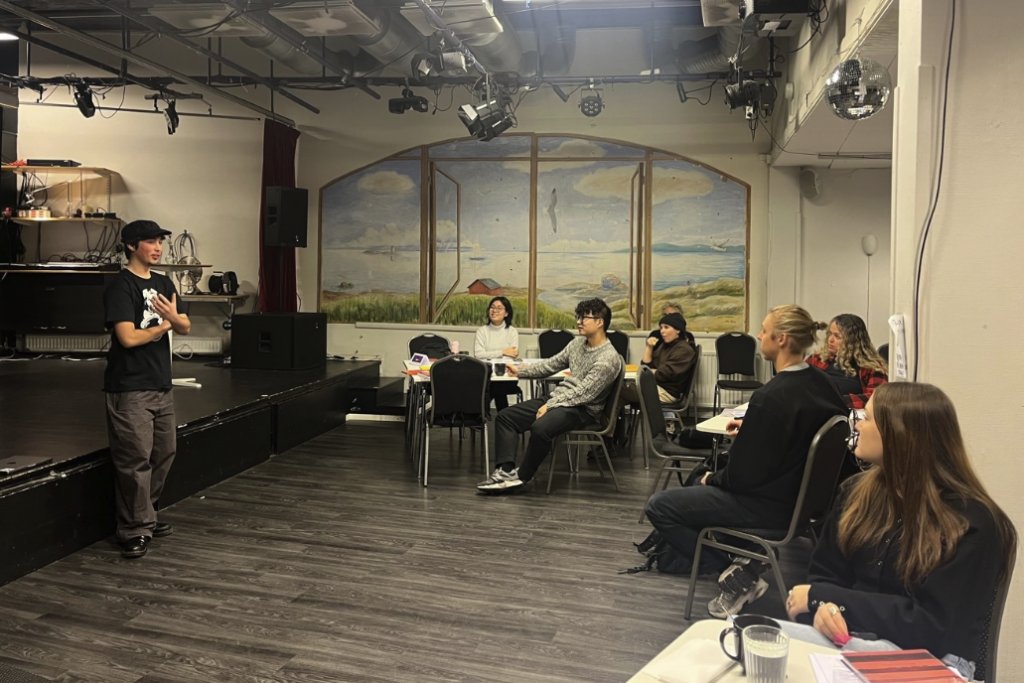Sweden, Stockholm. The increasing real estate costs in Stockholm have become a pressing issue, particularly impacting Sweden’s cultural and higher education sectors.
The sharp rise in rental prices for premises used by cultural and academic institutions has created a financial burden for them. At the same time, government financial support for these institutions has not kept pace with rising operational costs, leading them to reduce their direct activities and staff numbers. If not addressed, this challenge could have wider implications, such as a potential reduction of Sweden’s global reputation as an innovative and cultural capital, as well as a loss of attractiveness to students and retention of talent at the university.

To find solutions to this problem, InteractionSeeds’ partner RISE, together with the Stockholm School of Economics and the School of Entrepreneurship, met for a very special workshop.
The two-day workshop aimed to discuss societal issues that students could easily relate to, raise their awareness and start a discussion about current challenges, to introduce students to systems thinking and using artistic approaches when solving complex problems.





After two exciting workshop days in November all participants draw a thoroughly positive conclusion:
Regarding the two-day set-up, day one offered a more than creative and artistic environment. The Rågsveds Folkets Hus allowed the participants to be in a cultural building. This special place has a history as the place where the Swedish punk movement started. The students had the opportunity to visit the historic music room. They also organise art exhibitions, and the art gallery was opened for the students to explore. On the second day, the 12 students continued their work in the School of Entrepreneurship.
The workshop concept consisted, among other things, of the integration of various artistic methods.
The students were given a set of tasks during the exploratory walk that aimed to open up their creativity in exploring the societal challenges they were working on, for example, the students had to notice a colour or a sound, walk in that direction and then discuss a certain question.
PowerPoint presentations were not allowed during the workshop. When presenting the mapping of the societal challenges of the corresponding societal issues, the students were invited to use other presentation methods, like one group making a theatre performance with a role play.
The final task was to make three videos describing possible scenarios, where the students were free to decide how to do it. For example, some groups performed a role play, one group filmed a simple animation (consisting of simple drawings) to illustrate their scenario.
The interaction raised awareness of the critical situation in the cultural and educational sectors. The students were very engaged in the explorative and creative processes.
“I heard that students did not want to leave the school on Sunday, after the workshop was over. This is a sign that they really liked it.” Partner from SSES, male.
It is important to invite students studying diverse disciplines to be able to work with really diverse perspectives. Conducting the workshop in a cultural building seemed very important and allowed to explore and understand the meaning of that place for the community. The collaboration between RISE working more with industry partners, educational organisations and a cultural organisation was very successful and had good outcomes for the workshop experience and results.
